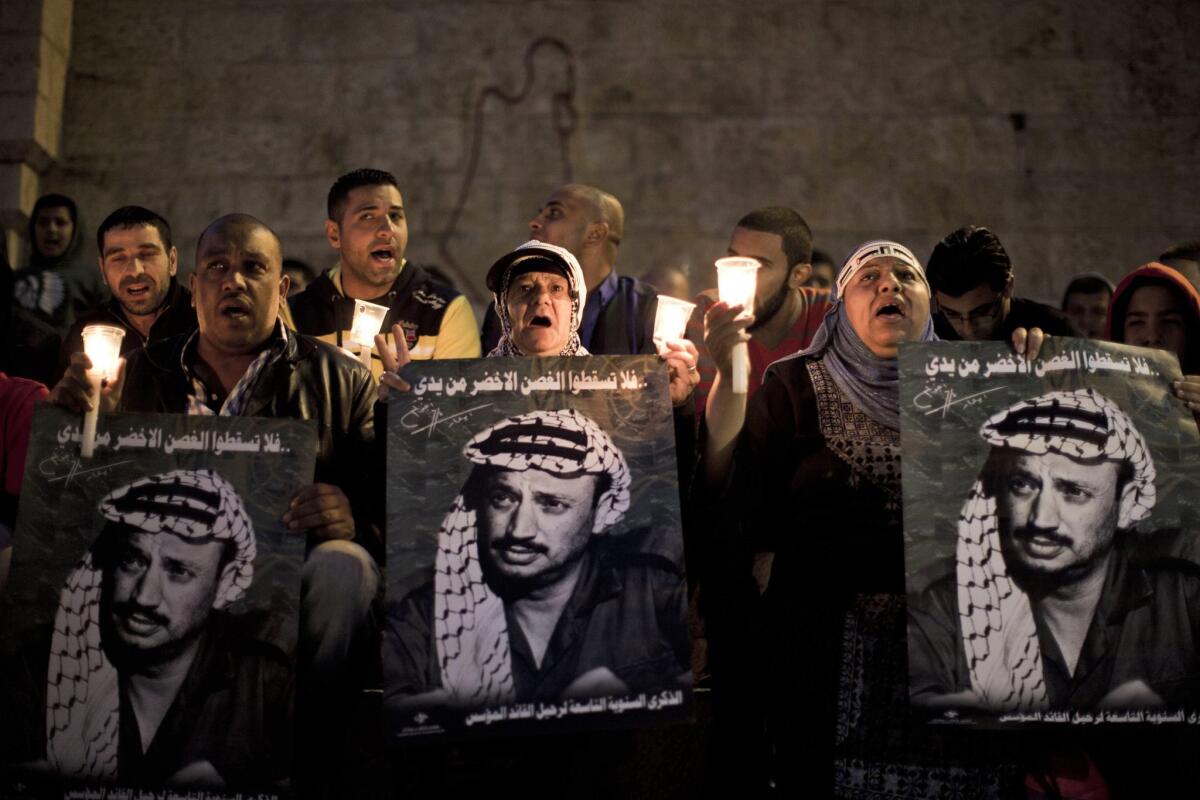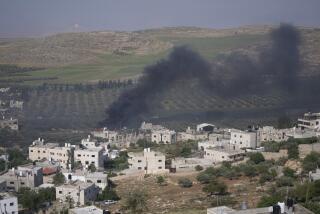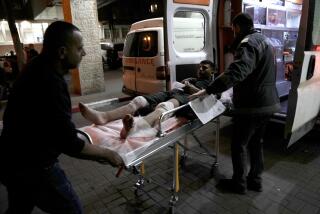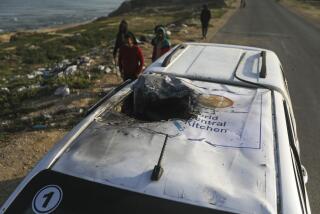Palestinians mark anniversary of Arafat’s death, blame Israel

RAMALLAH, West Bank – Marking the ninth anniversary of the death of the late Palestinian leader Yasser Arafat, Palestinians in the West Bank held rallies on Monday and accused Israel of assassinating Arafat and calling for an international inquiry into his death.
Rallies were held in all major West Bank cities, where Palestinians carried portraits of Arafat and listened to speeches by members of his Fatah party glorifying their late leader and accusing Israel of causing his death. Officials also lined up in the evening at Arafat’s grave in Ramallah to lay wreaths.
Swiss lab results published last week showed that radioactive polonium 210 was found on samples taken last year from Arafat’s remains, lending weight to Palestinian charges that Arafat died of poisoning, although the findings were not considered conclusive.
Chief Palestinian negotiator Saeb Erekat said Palestinian Authority President Mahmoud Abbas spoke to U.S. Secretary of State John Kerry at their last meeting in Ramallah about the possibility of asking the U.N. Security Council to set up an international inquiry into Arafat’s death. It would be similar to one established to investigate the assassination of the late Lebanese Prime Minister Rafik Hariri.
Erekat told Palestinian TV that Abbas also talked with Kerry about asking the U.N. General Assembly to condemn what he said was the assassination of Arafat. The Palestinian Authority last year became a non-member observer state in the United Nations.
At a press conference in Ramallah, Arafat’s nephew, Nasser Qudwa, accused Israel of responsibility for Arafat’s death. “Yasser Arafat was poisoned by polonium 210, which is proof that Israel was engaged in political assassination,” he said.
Polonium 210 is a highly toxic, radioactive substance that is best known for causing the death of a former Russian intelligence agent turned Kremlin critic, Alexander Litvinenko, who died in London in 2006 after drinking tea laced with the poison.
ALSO:
Kerry: Nuclear talks fell apart because Iran balked
Philippines typhoon eyewitness: ‘There was death everywhere’
Toronto Mayor Rob Ford loses radio show, calls mount for his exit
More to Read
Start your day right
Sign up for Essential California for news, features and recommendations from the L.A. Times and beyond in your inbox six days a week.
You may occasionally receive promotional content from the Los Angeles Times.






